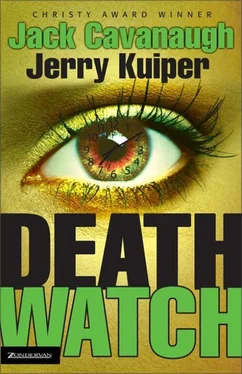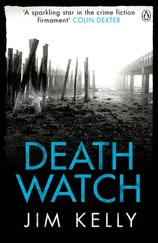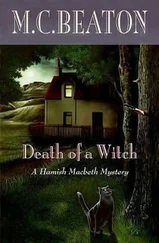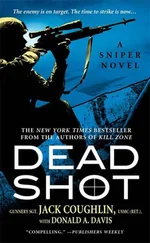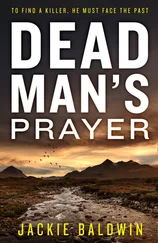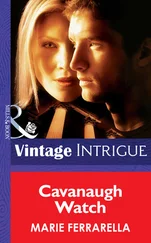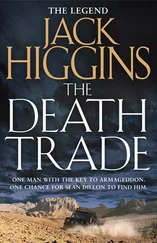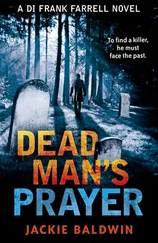“And do what?” Sydney cried.
“Get the story. It’s national.” Hunz turned to Josh. “Oh… .and he’s looking for you, too. He sounded peeved. Grant Forsythe did the sports tonight.”
“You didn’t tell anyone you were leaving?” Sydney said.
“I had more important things on my mind than reporting a bunch of scores,” Josh said.
Meanwhile, police are trying to talk Mr. Peppers down from the ledge.
The camera cut back to the reporter in front of the Hilton Hotel sign.
When asked if they thought Mr. Peppers could solve the mysterious death watch puzzle, authorities declined comment. But in a world gone mad, where messages transcend normal transmission limits and breach ultrasecure channels in space, who’s to say? And if, as it has been said, fortune favors fools and small children, perhaps we should listen to a homeless man who says he converses with angels. This is Chandra Smyth reporting live from Chicago. Back to you, Bill.
Between the food court and ground transportation curbside the foursome made the decision to split up.
“How far is it to O’Hare?” Hunz asked.
“I’m not very good at distances,” Cheryl replied. “You go straight up Cicero to I-90 west. Fifteen, maybe twenty miles, I think.”
“We’ll meet up with you at the hospital as soon as we can.” Hunz held Stacy while Josh climbed into the back of the limo behind Cheryl.
Cheryl reached a hand across Josh. “Thank you for everything,” she said to Hunz. She squeezed his hand warmly, then looked up at Sydney. “Sydney, you too, dear friend. Come as quickly as you can.”
“We will,” Sydney said.
Hunz closed the limo door and it pulled away from the curb.
“You didn’t tell them?” Sydney asked.
“And add one more worry to her burden?”
He hailed a cab. Sydney checked her watch. Hunz had barely seven hours to live.
Hunz hadn’t spoken a word since they left Midway. He stared out the taxi window at the lights—convenience stores, gas stations, donut shops, strip malls, grocery stores, auto shops, and tire centers.
A man who had less than the length of a workday to live should have something more poetic to look at, Sydney thought, like mountain streams, blue skies, and flowers. Acres and acres of flowers.
She wondered what he was thinking, but didn’t ask. Not that she was afraid. They’d been through enough together—walking through the valley of death is the phrase that came to mind—that she felt comfortable asking him personal questions. He just seemed to need some alone time.
What does a perfectly healthy man who knows he’s dying think about? The details of his impending death? Will it be an accident? A fall, or possibly a runaway vehicle? Does he have an undiagnosed malady? A heart imperfection, like the actor John Ritter, or a blood clot, like Lyle Vandeveer? The body is such a complex and delicate vessel with a thousand ways to break it.
Whether the stone hits the pitcher, or the pitcher hits the stone, it’s going to be bad for the pitcher. Words of wisdom from that immortal philosopher, Sancho Panza.
And then there was the biggest unknown—who was throwing the rocks? Who was smashing vessels of flesh the world over?
Aliens? Had anyone considered aliens? Was this some sort of extraterrestrial prelude to invasion? Some sort of otherworldly war? Of course, it would have to be a technologically advanced race. That went without saying, didn’t it? If they had the ability to travel the gazillion light-years scientists said they’d have to travel just to get here, they’d have to be advanced, right? But given the bizarre facts of Death Watch, were aliens out of the realm of possibility?
The cab accelerated onto I-90, leaving the colored store signs behind. It wasn’t long before they could see commercial airplanes low in the sky, approaching O’Hare International Airport runway. Huge green overhead freeway signs provided arrival and departure information.
As they neared the airport terminal, red taillights like fireflies began popping up in front of them. The cab slowed. The driver cursed. It seemed odd to encounter traffic this time of night.
With a pudgy, freckled hand the driver gestured at a large white “Pardon Our Face-lift” sign.
“Can you get us directly to the hotel?” Sydney asked.
“Looks like the police got the hotel blocked off. Wonder what’s up with that?” the cab driver said.
To their left, barricades blocked the road leading to the Hilton.
Hunz opened his door. He threw money at the driver.
“Let’s go,” he said to Sydney.
The next thing Sydney knew, the two of them were running between rows of cars toward the white lights of the terminal. Because of open ditches and construction scaffolding the length of the loading zone, they had to stay in the roadway until they were parallel to the doors.
To their left was the Hilton Hotel, attached to the terminal, its features bleached in the glare of police spotlights. The overhang on the terminal prevented them from seeing the hotel’s roof; neither could they see the street in front of the hotel.
“We have to go down one floor,” Sydney said.
Searching for a down escalator, they raced into the terminal, stepping over piles of luggage, brushing past people, sidestepping long lines in front of the ticket counters.
Hunz spotted it first. Sydney had to quicken her pace to keep up to him.
They raced down the escalator, across the terrazzo floor, past baggage carousels, and out the door, once again in the Chicago night.
Playing cop, Hunz stiff-armed traffic to a halt as they crossed lines of traffic. They dashed under the elevated airport transit tracks just as a train whooshed over them.
A policewoman met them. She was short and freckled, with orange-red hair tucked beneath her hat. “Sorry, folks. Hotel’s temporarily unavailable,” she said. “We got a situation here.”
Sydney looked up at the situation. Billy Peppers was seated atop a ten-story building of glass with a convex facade. At the far right, it met the airport control tower. Billy was in the center, his legs dangling over the edge.
“This is Sydney St. James,” Hunz said to the policewoman.
“I’m Sydney St. James,” Sydney said, a half syllable behind him. She flashed her press pass.
The name didn’t register with the policewoman. “Glad to meet you. Like I said, folks, I’m sorry but. . ”
A short distance away, a man coiling cable overheard the exchange. He grabbed the arm of a woman nearby and said something. She swung Sydney’s direction. Barking orders, she quickly navigated an intercept course. Sydney recognized her. It was Chandra Smyth.
By the time she reached Sydney, she had a microphone in hand, the area was awash in camera light, and she was asking her first question.
“Miss St. James, what is your connection to William Peppers, the man on the ledge?”
The swift approach of the camera crew took the policewoman by surprise. She obviously didn’t like the intrusion but didn’t know what to do about it. The lights and sudden movement caught the attention of another officer, a sergeant fifty feet away. He hurried toward them, scowling.
The suddenness of the ambush caught Sydney off guard. She reacted like the proverbial deer in the headlights.
Hunz stepped forward, putting his hand over the camera lens, a move that angered the cameraman. “Miss St. James has no comment at this time,” Hunz said, positioning himself between Sydney and Chandra Smyth.
“What’s going on here?” said the approaching police sergeant.
Sydney identified herself again.
Читать дальше
